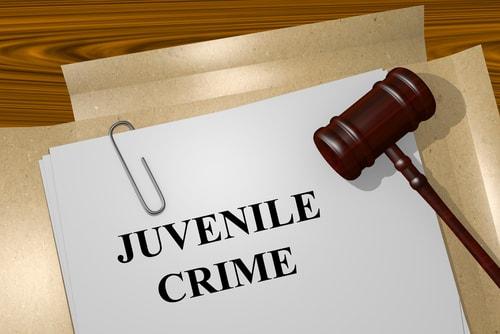Juvenile vs. Adult Court in Illinois
 Sometimes, young people make mistakes. When that happens, Illinois law allows them to be tried in juvenile court as long as they are under the age of 18. If your child has been arrested or charged with a crime, the matter will be handled in a very different way than it would be in an adult courtroom. Nonetheless, ensuring you have a good attorney to help your family through the process can make things easier on all involved.
Sometimes, young people make mistakes. When that happens, Illinois law allows them to be tried in juvenile court as long as they are under the age of 18. If your child has been arrested or charged with a crime, the matter will be handled in a very different way than it would be in an adult courtroom. Nonetheless, ensuring you have a good attorney to help your family through the process can make things easier on all involved.
Many Differences
Unlike proceedings in regular court, juvenile proceedings have differing nomenclature and require different people and things. For example, representation by an attorney is required in all cases in Illinois juvenile court, and in most cases, a putative offender’s parents are also required to be present. Also, under Illinois law, minors who commit crimes are not seen as criminals, per se; rather, they are seen as “delinquent minors,” and the focus in most juvenile cases is intended to be on rehabilitation, rather than retribution. This does not always play out, but the general slant of the law pointed is in this manner.
One of the other important distinctions between juvenile and adult proceedings is that no bail or bond option exists in juvenile court. Whether or not the minor is released to the custody of their parents is entirely up to the judge, who weighs a host of factors before making a determination - for example, the perceived threat level and flight risk of the alleged offender. This can sometimes be a shock, especially to parents who might expect to take their child home after a hearing, but it is current law in Illinois.
Expungements and Seals
Because the focus of the juvenile court system in Illinois is to rehabilitate, another major difference between the two court systems is that in juvenile court, a person’s record is generally either sealed or expunged upon their reaching the age of majority (18 years of age). Sealing means that the record still exists, while expungement means the relevant conviction is erased. The difference matters because even if a juvenile record is merely sealed, certain agencies and employers (for example, the federal government and certain corporations in the security field) may be able to view those records, which might prejudice them against hiring a person.
If your child is convicted of a crime, it is important to keep in mind what cannot be expunged at all. For example, DUIs (driving under the influence) are considered adult crimes, even if you are tried as a juvenile, meaning that they would not fall under any juvenile expungement. Any offense that falls under the Illinois Juvenile Court Act, such as assault, battery, or certain drug possession offenses, among others, is generally a candidate for expungement either at age 18 or age 21, depending on the nature of the specific offenses.
Enlist an Experienced Attorney
Being arrested and charged with a crime as a juvenile is frankly terrifying to many, and arguably even more so to their parents and guardians. The juvenile defense attorneys at Kathryn L. Harry & Associates, P.C. may be able to assist you and your family in navigating what can be a complex process. Contact our DuPage County criminal defense attorneys today to set up an initial appointment.
Source:
 1200 Harger Road, Suite 830, Oak Brook, IL 60523
1200 Harger Road, Suite 830, Oak Brook, IL 60523







